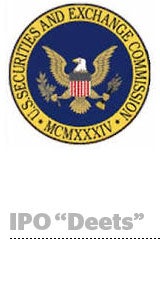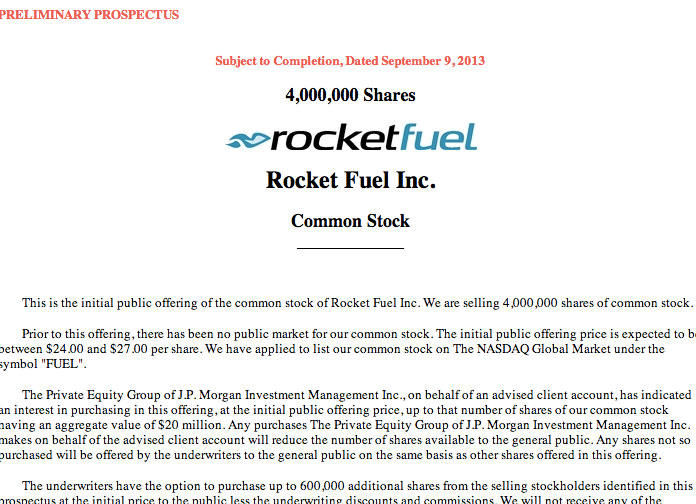 Real-time ad platform Rocket Fuel amended its S-1 Registration statement (see it) to go public and revealed how much it will raise and how much it will be worth should all go according to plan.
Real-time ad platform Rocket Fuel amended its S-1 Registration statement (see it) to go public and revealed how much it will raise and how much it will be worth should all go according to plan.
The answer according to NASDAQ: “$102 million by offering 4.0 million shares at a price range of $24 to $27. At the midpoint of the proposed range, Rocket Fuel would command a fully diluted market value of $981 million.”
A source noted that the valuation above may be a bit high. While eventually, Rocket Fuel might sell close to 4 million shares, the IPO calls for just under 3.5 million to be sold. Multiply that number by the mid-point price of $25.5 per share, and the valuation looks more like $828 million, not $981 million.
As with recent ad tech IPOs in the digital video space from Tremor and YuMe,Redwood City, CA-based Rocket Fuel will go public before reaching profitability. But whereas both Tremor and YuMe have shrunk their gap between loss and profit, Rocket Fuel’s has only grown. The company ended last year with a net loss of $10.3 million and ended the first six months of 2013 with a loss of $11.9 million.
But as a wider programmatic platform player, Rocket Fuel has some advantages that might appeal to investors, despite the added losses. The company has shown strength in revenue growth and other sales metrics. It doubled its client list to 784 last year as revenue jumped 139% to $106 million. Gross margins also rose markedly, up 46% between January and June 2013 – 2 percentage points higher than the same period in 2012.
Rocket Fuel has raised $76 million since opening its doors in 2008. The company’s public offering will leave Rocket Fuel CEO George John with the wherewithal to do more hiring of the kind promised earlier this year as well as well complete its international expansion.
Interestingly, in perhaps another sign of the times from the S-1, investment banker LUMA Partners confirms that it is “co-managing” the RocketFuel IPO along with a host of other larger investment banks such as Bank of Montreal and Citigroup. Investment banks such as LUMA have traditionally helped with mergers and acquisitions.











